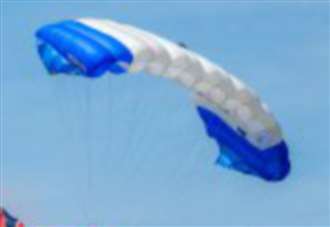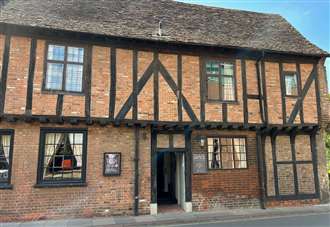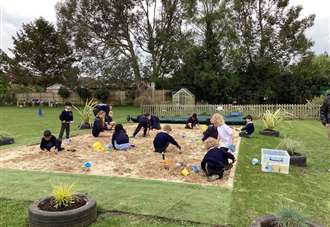
MP James Wild’s June 23 column:
For someone not terribly keen on heights, parachuting out of a RAF plane last week was exhilarating and a little terrifying.
Thankfully, it was only a Virtual Reality jump at RAF Brize Norton, home to the No.1 Parachute Training School. I was at the base as part of the Armed Forces Parliamentary Scheme with the RAF which gives MPs a first-hand insight into military life.
As we mark Armed Forces week it was a reminder of the dedication and bravery of those who serve to keep Britain safe.
Synthetic training methods such as VR play an increasingly important role. Our instructor at the training school had made over 1,000 real parachute jumps and, aside from showing MPs the virtual option, he was training recruits through simulated jumps before they do it for real.
There are obvious cost, safety, and other benefits from using simulators but the main reason they are a viable option is because they are incredibly realistic. Indeed, when I later landed an A400M transport plane with a bump the people of Gibraltar will be relieved it was not for real and their runway remains intact.
On Monday, I joined members of the Armed Forces, the Royal British Legion, RAF Association, the Deputy Mayor, and others in Tower Gardens for the raising of the Armed Forces flag.
Through the parliamentary scheme I’ve met many personnel at RAF Marham and other bases who are protecting the UK and supporting operations around the world. This was an opportunity to recognise those who are and have served our country and their families.
It was also encouraging to see local air cadets once again on parade and I know a number are considering careers in the RAF in one of the many roles such as engineering or avionics that support flying operations.
The training offered in the Armed Forces gives people highly transferable skills when they decide to leave. And supporting people as they transition into civvy street has been a real focus in recent years so they can go on and have successful second careers.
That’s particularly important when there are 7,281 Armed Forces veterans living in West Norfolk – representing 5.4 per cent of the population compared to of 3.8 per cent nationally.
In Parliament, I recently met one of them – Scott – a former Royal Electrical and Mechanical Engineer from Castle Acre who explained how he moved into a successful career in forestry.
He served 23 years and when he was looking for opportunities after leaving he was attracted to forestry.
Now he is a supervisor for Forestry England working in Thetford forest. This is just one example of the sectors where there is the potential for veterans to flourish.
The war in Ukraine has underlined the importance of controlling airspace in combat. Through major investments in capabilities such as F35s at Marham, Protector drones, and P8 Poseidon submarine hunting planes, the RAF has some great capabilities.
But the message from personnel I’ve met is clear that we also need to keep investing in people and infrastructure to maintain the best fighting forces.














